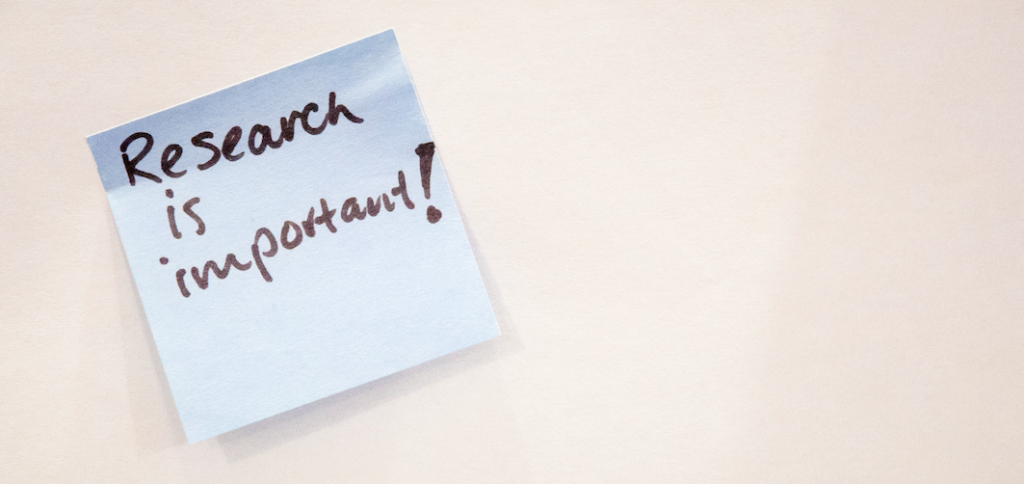As a strong advocate for scholarly and evidence-based teaching and learning practices, BCcampus creates spaces to support this work through various sessions, symposia, and workshops. These learning opportunities help to support scholarly teaching and learning practices in British Columbia by bringing together educators and thought leaders as a way to connect and share their research and resources with others in the higher ed community.

At the Festival of Learning, we are showcasing four half-day workshops to attendees who wish to design a scholarly inquiry project for use in their own teaching. In anticipation of these workshops, we asked facilitators and university educators Ido Roll and Peter Arthur about the benefits and challenges of this work. Here’s what they had to say:
 Ido Roll, Senior Manager, Research and Evaluation, University of British Columbia
Ido Roll, Senior Manager, Research and Evaluation, University of British Columbia
Can you tell the story of how you got involved in this work?
I have been doing SoTL for about 7 years before I had known that it had a title. Being part of the Carl Wieman Science Education Initiative, I worked with instructors to find a way to evaluate and improve our teaching. It became clear to me that a systematic approach has to build on knowledge of behavioural research methods as well as disciplinary ways of knowing. Presently, as part of my role as the Senior Manager for Research and Evaluation at the University of British Columbia, I help instructors study their teaching in a way that combines professional development, course improvement, and contributions to our understanding of teaching and learning in higher education. I also invest significant effort to promote the transfer of knowledge across practitioners.
What advice would you give to a new faculty member who is considering getting started in this work?
Do not take anything in the practice of teaching for granted. Ask yourself: why do I do this? Does it work? How can it be done better?
Then, before you give yourself an answer, ask yourself: what would be a convincing piece of evidence? What would have convinced me that I was wrong, if that is the case?
Then, go seek this evidence. Look for opportunities for improvement, not for proofs that you do great.
If post-secondary institutions were ten times bolder, how would they support scholarly inquiry locally, on their campuses? What programs, initiatives, support services or positions would exist?
At the University of British Columbia, we have a program that I wish I could have increased tenfold. In the SoTL Seed program, we offer instructors the help of export graduate research assistants, called SoTL Specialists. The program works in three circles: First, each project lead works with their research assistant. Second, cohorts of project leads work together in a collegial manner to support each other. Third, the SoTL Specialists work as a group with complementary expertise. This model allows us to be very effective in supporting SoTL. Our students become experts and can respond quickly to needs such as Ethics applications or survey design. Our instructors broaden their knowledge and acquire skills and tools that help them in the future. Last, through the collegial support, the program gains significant momentum that transcends the few selected projects and helps to facilitate a cultural shift.
Another approach that I advocate for is the training of disciplinary graduate students in SoTL. In most graduate programs, there are those who are interested in how to teach the discipline. These are the ones to later become excellent instructors. It would be great to give them training in SoTL during their graduate studies, and have them write SoTL theses. They are best capable of doing high-level research on teaching and learning in their discipline, and would work towards creating departmental expertise. While we have very few examples of this at UBC, we are yet to try this approach in a systematic manner.
Are there any challenges in SoTL research?
- The tyranny of “learning gains”. To often in SoTL we seek to improve “learning gains”, that is, focus on knowledge that is acquired in our courses. Instead, I would have liked to see a more holistic approach that examines shifts in attitudes, motivations, general learning skills and competencies, and behaviours.
- The tyranny of surveys. Whatever the research question is, chances are that instructors study it using attitudinal surveys. Surveys are great to find out what students think; they may be okay to find out what students do, and they are poor at anything else. It is about time that we use more sophisticated ways to evaluate our research questions. One source of data that is often overlooked is the secondary use of data – be it time on task, class attendance, or test performance.
- Transferability. This is perhaps our biggest challenge. We will often study different questions in our own classrooms, based on our ideas or things we already know. Little do we seek what was done before – and little do we consider how to inform others about what we have found. We work in silos. As a field, we should embrace a culture that promotes more transfer and mobilization of knowledge, approaches, and tools.
Why is Scholarly Inquiry important?
As a person, I will not trust a bridge that has not been tested. Yet, we expect our students to trust instruction that was not vetted.
A physician will not say that a certain medication works because she once had a patient that said that it really helped her. Yet, we often use similar anecdotes to prove that our instruction works.
Overall, there is a big gap here. We put a lot of effort in teaching better, yet we do not sufficiently study our teaching. Scholarly Inquiry closes the loop. How well do we do, and how can we do it better?
Notable quote:
“SoTL invites people of any academic background to research their students’ learning, nothing in academia is as broad as SoTL. It’s a great opportunity to learn from each other regardless of disciplinary stripe.” – Gary Poole, Senior Scholar, former Director of the Centre for Teaching and Academic Growth and the Institute for the Scholarship of Teaching and Learning at UBC
 Peter Arthur – Faculty of Education, University of British Columbia Okanagan
Peter Arthur – Faculty of Education, University of British Columbia Okanagan
What advice would you give to a new faculty member who is considering getting started in this work?
Getting started with SoTL allows new faculty to really think about their teaching, by taking a scholarly approach. You must ask yourself: What support and resources do I have? A lot of faculties are used to their discipline, specific research, and methodologies, so conducting SoTL can feel completely different.
A few highlights of joining the SoTL research community is gaining a support system, discovering resources and learning new processes in an environment that they hadn’t considered before, or even knew existed.
With the assistance of BCcampus, the members of the SoTL network are working towards developing a culture and building a stronger community in the post-secondary institutions both locally and provincially as a way to encourage collaboration and sharing of their teaching and learning beyond local campuses. In 2014 and 2015, BCcampus hosted the Symposium on Scholarly Inquiry into Teaching & Learning Practice as a way to bring educators together provincially to create greater SoTL awareness, promote collaboration and to learn from others who are at different stages of research. In June 2016, they will host the Festival of Learning.
I highly encourage new faculty members to keep an eye out for these teaching and learning opportunities that will support their SoTL research.
If post-secondary institutions were ten times bolder, how would they support scholarly inquiry locally, on their campuses? What programs, initiatives, support services or positions would exist?
Institutions should work to foster a SoTL culture among educators that is supported and recognized as important. Institution level grants provide the resources to support faculty with conducting and disseminating their SoTL. In addition, SoTL expertise should be provided for faculty transitioning from discipline-specific research to SoTL. Campuses need to provide educators the opportunity to share their research locally and beyond. Further, it is important that SoTL is recognized as a valuable contribution within the institution’s reward structure.
Do you have any resources that you’d like to share?
Here are a few resources on SoTL and evidence-based teaching. The first resource provides a great overview of the research out there and the other two are very helpful guides to support the SoTL process:
- Hugh, J. & Mighty, J. (2010). Taking Stock: Research on Teaching and Learning in Higher Education.
- Fenton, N. & Szala-Meneok, K. (2011). Research on Teaching and Learning Guidebook. Centre for Leadership in Learning, McMaster University.
- Elgie, S. (2012). Researching Teaching and Student Outcomes in Postsecondary Education: A Guide. Toronto: Higher Education Quality Council of Canada.
Want to attend a SoTL workshop?
Sign up for the four half-day workshops at the Festival of Learning offered to any participant focused on learning how to design an inquiry project into teaching and learning.
Workshop: Scholarly Inquiry Project: Introduction to Scholarly Inquiry Project Components
Learn more:
- Festival of Learning
- 2015 Symposium on Scholarly Inquiry into Teaching and Learning Practice
- 2014 Symposium on Scholarly Inquiry into Teaching and Learning Practice
- Scholarly Inquiry into Student Learning: Designing Your Research Project
Join us at an upcoming event:
-
Facilitator Development Online (FDO) – May 9 – 20, 2016
-
Festival of Learning: Celebrating Teaching & Learning in Higher Education – June 6 – 9, 2016
Stay informed with BCcampus by signing up for our newsletter, visiting our calendar and following @BCcampus on Twitter.
